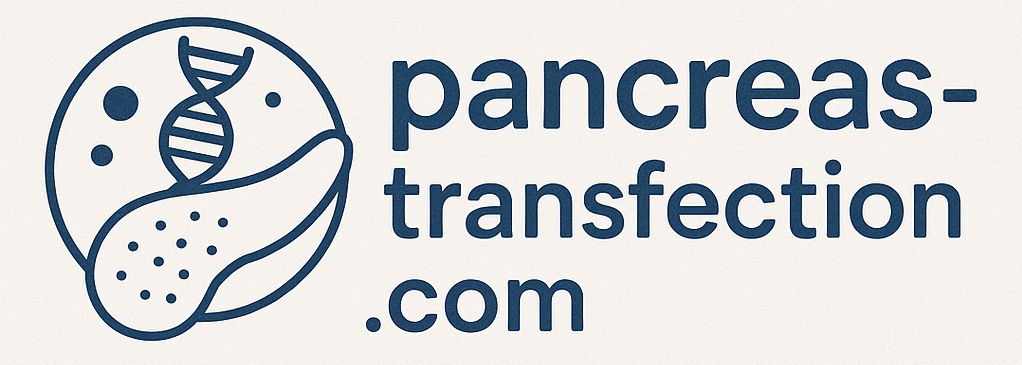
Introduction to BxPC-3 Cells
BxPC-3 is a well-characterized human pancreatic ductal adenocarcinoma (PDAC) cell line originally derived from a moderately differentiated adenocarcinoma in a 61-year-old female patient. Unlike many pancreatic cancer cell lines, BxPC-3 is wild-type for the KRAS gene, which provides a valuable contrast to commonly used KRAS-mutant lines like PANC-1 and MIA PaCa-2. This distinction makes BxPC-3 particularly useful for studying KRAS-independent pathways in pancreatic tumor development and progression. The cells grow as adherent epithelial monolayers and display high tumorigenic potential in xenograft models, making them a staple in both in vitro and in vivo pancreatic cancer research.
Genetically, BxPC-3 cells possess mutations in TP53 and SMAD4, among others, and exhibit dysregulated TGF-β and EGFR signaling pathways. These alterations contribute to the aggressive phenotype and have implications for tumor resistance, immune evasion, and cellular differentiation. In addition to their unique KRAS status, BxPC-3 cells produce high levels of mucins and express carcinoembryonic antigen (CEA), which is relevant for biomarker discovery and diagnostic research.
Importance of Transfection in BxPC-3 Cells
Transfection of BxPC-3 cells is central to dissecting molecular mechanisms involved in PDAC progression, testing gene function, evaluating therapeutic targets, and modeling drug responses. Delivery of nucleic acids such as siRNA, miRNA, plasmid DNA, or CRISPR/Cas9 components enables researchers to induce gene knockdown, overexpression, or genome editing to explore cell signaling, growth regulation, apoptosis, and metastasis-related pathways. Given their epithelial origin and moderate growth rate, BxPC-3 cells are moderately receptive to transfection; however, suboptimal delivery and cytotoxicity remain concerns with standard reagents.
Altogen BxPC-3 Transfection Reagent Overview
The Altogen BxPC-3 Transfection Reagent is specifically optimized for high-efficiency gene delivery into BxPC-3 cells while minimizing cytotoxic effects. Its proprietary formulation of lipid and polymer-based components enhances cellular uptake and promotes endosomal escape, which are key limitations in conventional transfection reagents. The reagent supports transfection in serum-containing medium, preserving physiological conditions and maintaining high cell viability.
This reagent is compatible with a broad range of nucleic acids including siRNA, miRNA, plasmid DNA, mRNA, and CRISPR/Cas9 complexes. Transfection efficiency for plasmid DNA typically exceeds 75%, while siRNA-mediated gene silencing yields knockdown efficiencies above 80%, with cell viabilities generally remaining above 85%. These results are consistent across various experimental platforms, including gene expression profiling, pathway inhibition assays, and functional genomics studies.
Transfection Protocol and Optimization
For optimal transfection results, BxPC-3 cells should be seeded at 50% confluence in complete medium 18–24 hours before transfection. The Altogen reagent and nucleic acids should be separately diluted in serum-free medium, combined, and incubated to allow complex formation. These complexes are then added directly to the cells in complete growth medium. Gene expression or silencing can typically be assessed within 24–72 hours post-transfection.
Optimization parameters include adjusting the reagent-to-nucleic acid ratio, verifying nucleic acid purity, and monitoring cell confluence and health before transfection. The Altogen reagent is endotoxin-free, sterile-filtered, and stable for 12 months at recommended storage conditions. A troubleshooting guide is included to help resolve common issues such as low transfection efficiency or post-transfection toxicity.
Product Availability and Advantages
Altogen’s BxPC-3 Transfection Reagent is available in 0.5 mL, 1.5 mL, and 8.0 mL sizes to accommodate experiments ranging from single-well tests to full-plate screening assays. Compared to general-purpose reagents like Lipofectamine or PEI, the Altogen reagent consistently demonstrates superior performance and reduced toxicity in BxPC-3 cells. This makes it the preferred choice for labs focusing on pancreatic cancer research and therapeutic development.
Research Applications
The Altogen BxPC-3 Transfection Reagent is widely employed in studies involving gene silencing of TP53 or SMAD4, overexpression of therapeutic genes, CRISPR/Cas9-mediated gene editing, and pathway-specific reporter assays. Its versatility also enables combination experiments such as co-transfections with siRNA and plasmid DNA to study synergistic or compensatory mechanisms in cell signaling.
Request the Altogen BxPC-3 Transfection Reagent
To achieve high-efficiency, low-toxicity transfection of BxPC-3 cells, request the Altogen BxPC-3 Transfection Reagent. Visit the official product page to place your order.
